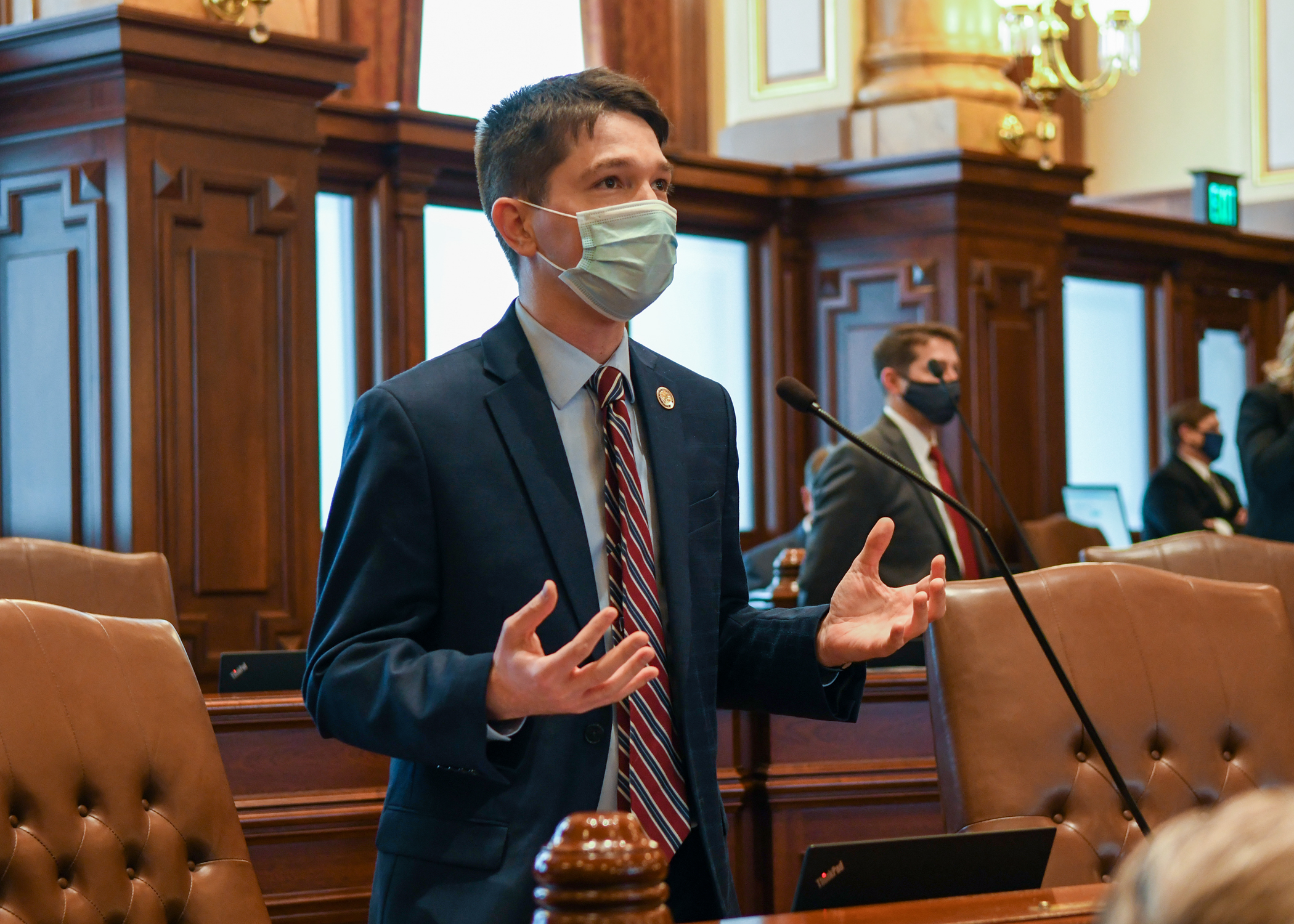DENVER (AP) — Artificial intelligence is helping decide which Americans get the job interview, the apartment, even medical care, but the first major proposals to reign in bias in AI decision making are facing headwinds from every direction.
Lawmakers working on these bills, in states including Colorado, Connecticut and Texas, are coming together Thursday to argue the case for their proposals as civil rights-oriented groups and the industry play tug-of-war with core components of the legislation.
Organizations including labor unions and consumer advocacy groups are pulling for more transparency from companies and greater legal recourse for citizens to sue over AI discrimination. The industry is offering tentative support but digging in its heels over those accountability measures.
The bipartisan lawmakers caught in the middle — including those from Alaska, Georgia and Virginia — have been working on AI legislation together in the face of federal inaction. The goal of the press conference is to highlight their work across states and stakeholders, reinforcing the importance of collaboration and compromise in this first step in regulation.
The lawmakers include Connecticut’s Democratic state Sen. James Maroney, Colorado’s Democratic Senate Majority Leader Robert Rodriguez and Alaska’s Republican Sen. Shelley Hughes.
“At this point, we don’t have confidence in the federal government to pass anything quickly. And we do see there is a need for regulation,” said Maroney. “It’s important that industry advocates, government and academia work together to get the best possible regulations and legislation.”
The lawmakers argue the bills are a first step that can be built on going forward.
While over 400 AI-related bills are being debated this year in statehouses nationwide, most target one industry or just a piece of the technology — such as deepfakes used in elections or to make pornographic images.
The biggest bills this team of lawmakers has put forward offer a broad framework for oversight, particularly around one of the technology’s most perverse dilemmas: AI discrimination. Examples include an AI that failed to accurately assess Black medical patients and another that downgraded women’s resumes as it filtered job applications.
Still, up to 83% of employers use algorithms to help in hiring, according to estimates from the Equal Employment Opportunity Commission.
If nothing is done, there will almost always be bias in these AI systems, explained Suresh Venkatasubramanian, a Brown University computer and data science professor who’s teaching a class on mitigating bias in the design of these algorithms.
“You have to do something explicit to not be biased in the first place,” he said.
These proposals, mainly in Colorado and Connecticut, are complex, but the core thrust is that companies would be required to perform “impact assessments” for certain AI systems. Those reports would include descriptions of how AI figures into a decision, the data collected and an analysis of the risks of discrimination, along with an explanation of the company’s safeguards.
The contention is mainly who gets to see those reports. Greater access to information on the AI systems, such as the impact assessments, means greater accountability and safety for the public. But companies worry it also raises the risk of lawsuits and the revelation of trade secrets.
Under bills in Colorado, Connecticut and California, the company wouldn’t have to routinely submit impact assessments to the government. The onus would also largely land on companies to disclose to the attorney general if they found discrimination — a government or independent organization wouldn’t be testing these AI systems for bias.
Labor unions and academics worry that over reliance on companies self-reporting imperils the public or government’s ability to catching AI discrimination before it’s done harm.
“It’s already hard when you have these huge companies with billions of dollars,” said Kjersten Forseth, who represents the Colorado’s AFL-CIO, a federation of labor unions that opposes Colorado’s bill. “Essentially you are giving them an extra boot to push down on a worker or consumer.”
Tech companies say greater transparency will reveal trade secrets in a now hyper-competitive market. David Edmonson, of TechNet, a bipartisan network of technology CEOs and senior executives that lobbies on AI bills, said in a statement that the organization works with lawmakers to “ensure any legislation addresses AI’s risk while allowing innovation to flourish.”
The California Chamber of Commerce opposes that state’s bill, concerned that impact assessments could be made public in litigation.
Another contentious component of the bills is who can file a lawsuit under the legislation, which the bills generally limit to state attorney generals and other public attorneys not citizens.
After a provision in California’s bill that allowed citizens to sue was stripped out, Workday, a finance and HR software company, endorsed the proposal. Workday argues that civil actions from citizens would leave the decisions up to judges, many of whom are not tech experts, and could result in inconsistent approach to regulation.
“We can’t stop AI from being woven into our daily lives, so obviously government has to step in at some point, but it also makes sense that the industry themselves wants a good environment to thrive,” said Chandler Morse, vice president of public policy and corporate affairs at Workday.
Sorelle Friedler, a professor who focuses on AI bias at Haverford College, pushes back.
“That’s generally how American society asserts our rights, is by suing,” said Friedler.
Sen. Maroney of Connecticut said there’s been pushback in articles that claim he and Rep. Giovanni Capriglione, R-Texas, have been “pedaling industry-written bills” despite all of the money being spent by the industry to lobby against the legislation.
Maroney pointed out one industry group, Consumer Technology Association, has taken out ads and built a website, urging lawmakers to defeat the legislation.
“I believe that we are on the right path. We’ve worked together with people from industry, from academia, from civil society,” he said.
“Everyone wants to feel safe, and we’re creating regulations that will allow for safe and trustworthy AI,” he added.
_____
Associated Press reporters Trân Nguyễn contributed from Sacramento, California, Becky Bohrer contributed from Juneau, Alaska, Susan Haigh contributed from Hartford, Connecticut.
___
Bedayn is a corps member for the Associated Press/Report for America Statehouse News Initiative. Report for America is a nonprofit national service program that places journalists in local newsrooms to report on undercovered issues.
Brought to you by
www.srnnews.com























